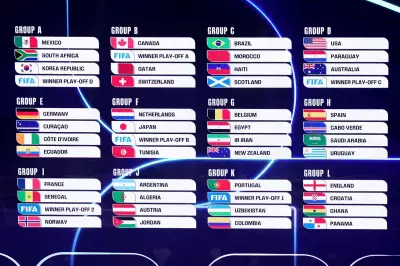
England's once fearsome white-ball cricket reputation has been left in tatters following a comprehensive One-Day International series defeat to a formidable South African side. The loss has cast a harsh spotlight on a deeply troubling and protracted record of underperformance that stretches back years, raising urgent questions about the team's direction.
The recent contest was a stark reminder of the gulf that can emerge when a team fails to evolve. While South Africa executed their plans with clinical precision, England appeared a shadow of the side that famously lifted the 2019 World Cup on home soil.
A Legacy of Inconsistency
Delving into the statistics reveals a pattern of inconsistency that has plagued England for far longer than many realise. The data paints a picture of a team that has struggled to find any semblance of rhythm or dominance in the 50-over format, a far cry from their 'all-out attack' ethos that once revolutionised the game.
This isn't merely a blip in form; it's a deeply entrenched issue. The numbers show a worrying inability to build partnerships, contain opposition batters in the middle overs, and close out games from winning positions. These are the fundamental hallmarks of a team struggling with its identity.
Leadership and Strategic Crossroads
The series defeat ignites a fresh debate around the team's leadership and strategic planning. The transition from the era of Eoin Morgan to Jos Buttler was never going to be seamless, but the scale of the challenge now appears monumental.
Critical questions are being asked about team selection, tactical flexibility, and the overall mindset. Has the aggressive philosophy that brought past success become a predictable and easily exploited tactic? Is there a need for a fundamental strategic rethink with the next World Cup cycle on the horizon?
Looking Beyond the Scoreboard
The concerns extend beyond the final scoreline. Observers have noted a lack of intensity in the field, a brittleness in the batting lineup under pressure, and a bowling attack that often lacks a cutting edge on flat pitches. These are the intangible elements that separate good teams from great ones.
For a nation with such a rich cricketing history and a domestic structure designed to produce limited-overs stars, the current trajectory is simply not sustainable. The defeat to South Africa must serve as a catalyst for change, a moment of stark realisation that prompts a thorough and honest review from top to bottom.
The path back to the top of world cricket is long and arduous. Restoring the aura of England's white-ball team will require more than just minor adjustments; it demands a profound examination of culture, strategy, and execution. The time for introspection is now.





